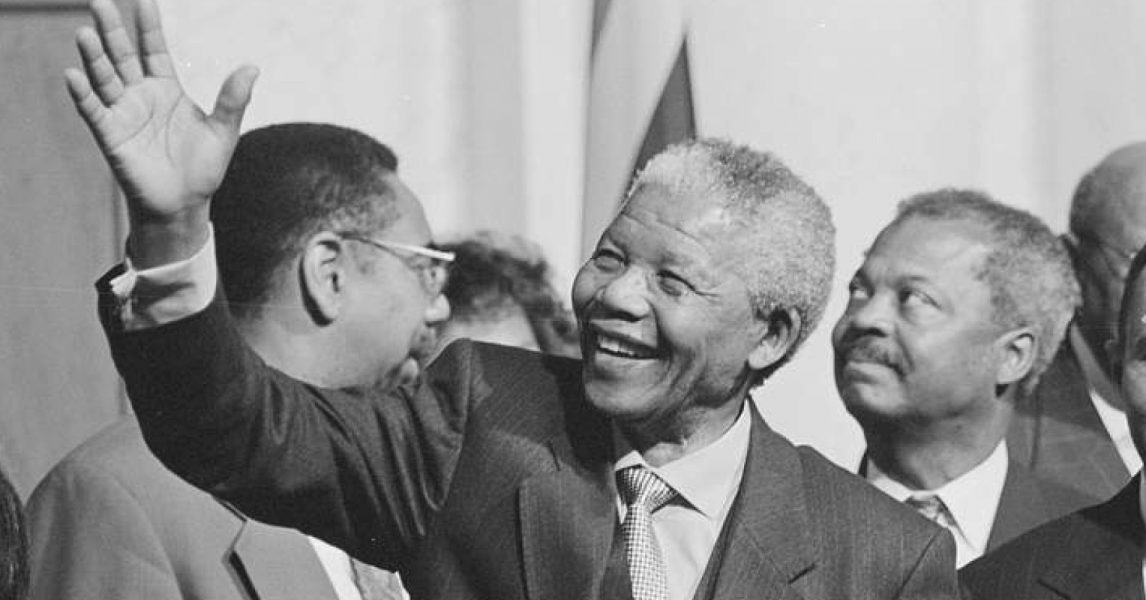Nelson Mandela is known for his bold leadership and relentless resistance against apartheid. His courageous activism, which cost him 27 years in prison, ultimately resulted in terminating this corrupt system. A natural dealmaker, Mandela combined unwavering resolve with strategic negotiation to liberate his people.
Negotiation is a unique balancing act. It is not simply compromise, nor is it a dogmatic means of attaining one’s goals. Rather, it is a discussion that respects all members while retaining core principles.
Here are three lessons on negotiation that leaders can learn from Nelson Mandela:
1. Establish Purpose
Although Mandela tested different resistance tactics throughout his lifetime, his purpose remained the same: to free South Africa from colonial rule. While studying law, he joined the African National Congress to advocate for the civil rights of Black South Africans. In 1948, apartheid was officially sanctioned. Mandela began organizing protests, embarking on a lifelong career to liberate his country. This purpose was the basis for Mandela’s negotiations with F.W. de Klerk, which were successful in establishing majority rule and ending apartheid.
Without a strong and well-defined purpose, negotiations fail. Negotiation is built on conviction, not compromise. To be a good negotiator, establish your purpose and stand by it.
2. Command Respect
Nelson Mandela was perhaps most respected for his work ethic and dedication. While not everyone liked him, he was respected by both his supporters and enemies. For example, after years of organizing, protesting and advocating, Mandela had earned a global reputation. In 1990, mounting international pressure and the threat of civil war convinced de Klerk to promise the termination of apartheid and release Mandela from prison.
Effective negotiators are respected individuals. Reputation can be either the deal-breaker or the deal-maker. To negotiate successfully, command respect.
3. Seek Peace
Although Mandela was firm in his resolve to free his people, he was not blinded by hate. In his own words, “Hating clouds the mind. It gets in the way of strategy. Leaders cannot afford to hate.” Rather, he focused his energy on creating strategic solutions and seeking peace. For example, as president he resolved a civil conflict by accepting Mangosuthu Buthelezi, who was hated by the African National Congress, into his government.
As Mandela shows us, successful negotiators establish purpose, command respect and seek peace. It is important to know our ultimate goal in our negotiations with others so that we can communicate clearly and maintain our core principles. We must also build a reputation that others will respect, allowing us to participate effectively in the discussion. Finally, we must replace hate with peace to achieve a positive outcome for everyone involved.
With these strategies, negotiation can become a tool for positive change. How will you apply these tactics to your discussions with others?
Related Articles:

